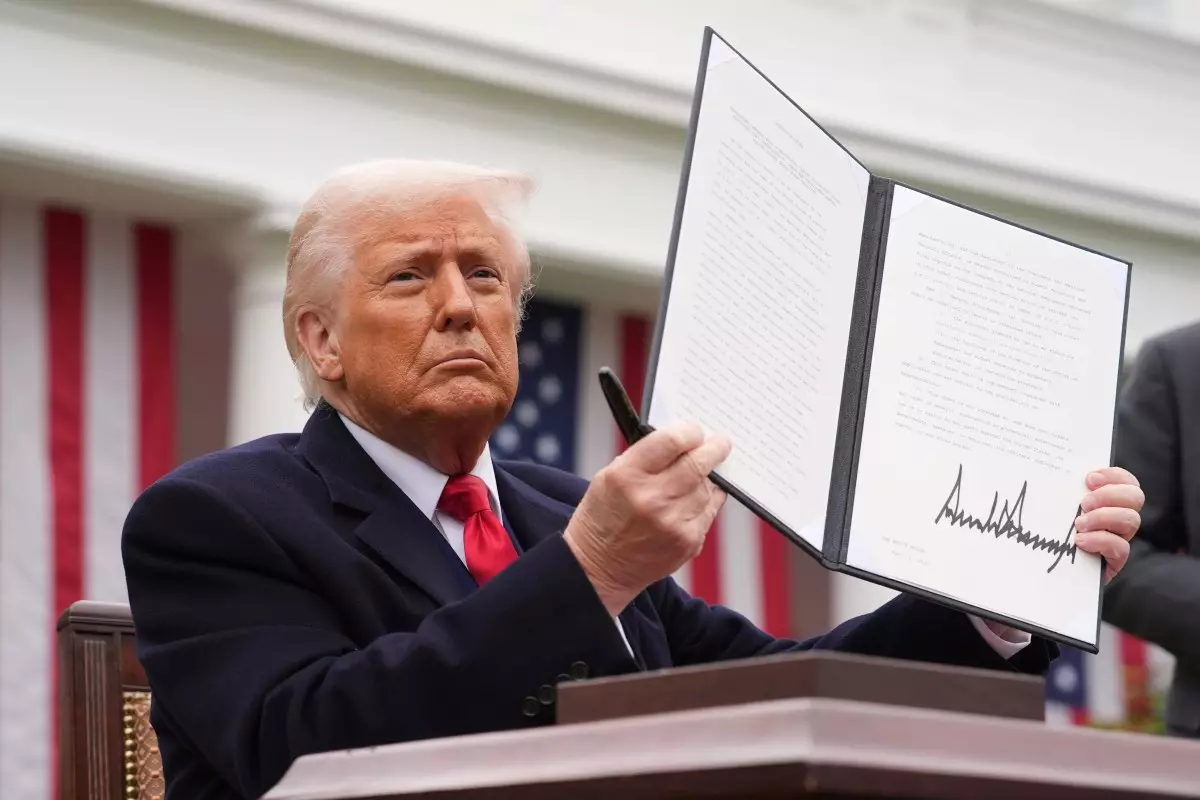The tumultuous trade environment shaped by the Trump administration’s tariffs has sparked vigorous debate, particularly within the technology sector. When President Trump announced a delay on previously implanted tariffs, the decision to maintain a baseline 10% tariff while enforcing a staggering 125% on certain Chinese goods raised eyebrows. The tech industry, which is inextricably linked to international supply chains, stands at a particularly precarious crossroads as it attempts to navigate these unpredictable waters. The administration’s strategic tariff exemptions, laid bare by U.S. Customs and Border Protection, bring a sense of relief, but lingering uncertainties remain.
Reshaping Manufacturing and Market Realities
One of Trump’s driving narratives has been the revival of American manufacturing—an appealing prospect for many voters. Yet, as idealistic as it sounds, the reality of producing American-made electronics remains fraught with challenges. The dream of unfurling an American-made iPhone is a compelling fantasy, but is it reasonable in today’s globalized economy? Innovation thrives on efficiency, and the existing tech giants like Apple and Nvidia have built vast ecosystems that depend on global production networks. The recently announced exemptions from crippling tariffs on vital products such as smartphones, laptops, and semiconductors could be a game-changing decision that empowers these companies, allowing them to sustain growth while keeping consumer prices stable.
Silicon Valley’s Involvement and Impact
The attention of tech leaders towards political engagement has only intensified. The embrace of Trump’s administration by prominent figures—ranging from Elon Musk to executives who gifted substantial sums to the inauguration—illuminates an obvious reality: technology and politics are tightly woven. Musk’s vocal support seems to have culminated in favorable tariff exemptions, a move hailed by industry analysts, including Daniel Ives from Wedbush Securities, who declared it “a dream scenario for tech investors.” However, the clamoring for proximity to power also raises questions about the responsibilities of these leaders to their consumers and the ethical implications of their engagements.
The Shadow of Future Regulations
While the current tariff exemptions signal a victory for the tech industry, the specter of further regulations looms. Reports suggest that a national security investigation into semiconductors is on the horizon, a development that could introduce new complexities and obstacles. The tension between safeguarding national interests and fostering innovation reveals a contradiction: can technological advancement flourish under stringent regulation? As the landscape evolves, tech companies must not only adapt but proactively strategize in anticipation of potential pitfalls that could undo any short-term gains from tariff relief.
The recent developments in the tariff landscape emphasize that while immediate obstacles may be alleviated, a more complex battle for the tech industry’s future is still at play. The interplay of politics, economic pressures, and technological progress will define the strategies companies adopt moving forward, ultimately shaping the landscape of innovation in the years to come.

